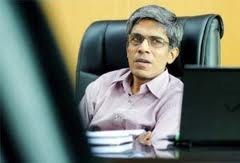
Chennai, April 20: The Indian Institute of Technology, Madras, which is on a safety-cum-morality drive, is having trouble keeping its house in order.
At an open campus forum on Thursday, IIT-M director Bhaskar Ramamurthi said hostel wardens don't have the authority to impose curfews without his approval.
The director's statement comes in the wake of reports that a few wardens are imposing their own rules in hostels claiming that they have the rights to do so.
The open discussion held at the central lecture theatre, which attended by the undergraduates, postgraduates and executive council members, discussed the controversial remarks made by some senior faculty members and wardens.
Ramamurthi clarified that views of some individuals is not that of the institution. "Individual views are immaterial and they depend on how that individual was brought up. But, just because the students are adults, we cannot evade rules," the director reportedly told the students as an introduction.
A student, who attended the meeting, said the director was more democratic in his opinions. "The director listened to the complaints of students on the new rules imposed by a warden at Tapti hostel and he promised them that such complaints will be considered," said the student. During the discussion, the students raised the issue of a set of rules in Tapti hostel like the right of room cleaners to continuously knock student rooms until they open and strict restrictions to stay in the hostel rooms from 9am to 4pm. The director disagreed with them and said, "Any decision to be taken finally will be collective."
Another proposal from the management -- a declaration to be signed by all students -- also invited protest from students. The declaration says, "The signatory is aware of the risks faced by wandering in the night outside safe zones and of the potential consequences of taking these risks." A senior faculty said rather than admitting and publicizing dangerous zones, the administration should have taken measures to make them safe. The management's move to curb the freedom of students continues to get brickbats from several faculty members in closed-group email communications.
A department head told TOI that imposing any individual views and rules on the student community will make them apolitical. "Our students are better informed and are mature than many of us. Their source of information and ideas should be respected at any cost and the errors should be corrected in a democratic way," he said.






Comments
Add new comment